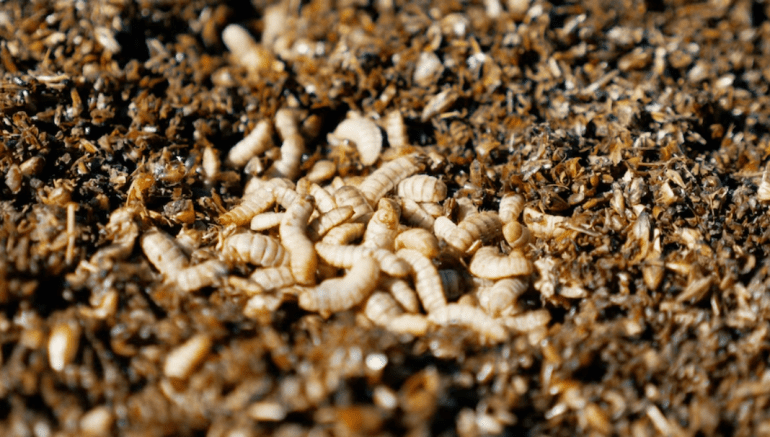- Felix Collins, founder of Full Circle Biotechnology, leads the charge in insect farming, utilizing 20 million black soldier fly larvae for animal feed production.
- Full Circle’s insect-based feed offers a sustainable, environmentally friendly alternative to soybean-based feeds, boasting a significantly lower carbon footprint and higher protein content.
- The company faces challenges due to the higher cost of insect-based feed compared to soybean feed, prompting the exploration of AI technology to optimize production efficiency and reduce costs.
- Collaboration with AI expert Simon Christofides aims to harness AI’s potential in analyzing vast datasets and fine-tuning production methodologies.
- Similarly, Cogastro in Lithuania is developing AI-driven solutions for insect farm management, slated for commercial release in the next three years.
Main AI News:
Embracing insect farming requires a sturdy stomach, a trait Felix Collins possesses abundantly. As the luminary behind Full Circle Biotechnology, Collins oversees a bustling community of 20 million black soldier fly larvae. Nestled in a modest, climate-controlled facility on the fringes of Bangkok, his team nurtures these insects to generate animal feed, servicing Thailand’s shrimp and pig industries.
At Full Circle, innovation is the hallmark. The larvae thrive in a cocoon of darkness, warmth, and humidity, feasting on discarded fruit and vegetable remnants procured from food and beverage manufacturers. Post-harvest, they’re blended with probiotic bacteria and mushrooms, yielding a sustainable alternative to soybean-based feeds that often contribute to deforestation in South America.
Collins champions the eco-friendly credentials of Full Circle’s offerings, boasting a carbon footprint “100 times lower than that of soymeal.” Indeed, studies corroborate the environmental benefits of insect-based feeds, particularly when larvae dine on natural waste. However, processed food sources for insects may tip the scale in favor of soybean feeds, according to certain reports.
Not just environmentally friendly, Full Circle’s feed packs a nutritional punch, boasting up to 70% protein compared to soy’s sub-50%. Founded in 2019, the company now fuels 49 farms across Thailand, albeit facing a formidable adversary: the price disparity between soybean and insect-based feeds.
Enter artificial intelligence (AI). Full Circle is leveraging AI to optimize production efficiency and drive down costs. By mining historical and real-time data on insect farming, an AI system is being trained to fine-tune production methodologies continuously. From temperature modulation to precise larval counting, AI promises to revolutionize the sector’s operational landscape.
Across the globe in Lithuania, Cogastro, a leading insect farm software provider, is charting a similar course. While their current software monitors farm metrics, an AI-driven upgrade aims to autonomously manage farm operations, slated for commercial release in the next three years.
Mante Sidlauskaite, Cogastro’s CEO, cautions against AI hype, citing the necessity of substantial data and industry expertise for effective AI implementation. Her skepticism extends to startups touting AI solutions prematurely, emphasizing the critical role of comprehensive data models in AI development.
Back at Full Circle, collaboration with AI expert Simon Christofides is propelling their technological evolution. Collins envisions AI as the key to unlocking insights unattainable through human cognition alone. By amalgamating sensor data and analyzing vast datasets, AI promises to illuminate the nuances of insect farming, expediting the industry’s maturation.
Nevertheless, Collins emphasizes the importance of respecting nature’s rhythms. While AI optimizes production processes, certain facets, like the delicate mating rituals of black soldier flies, are best left undisturbed. In the intricate dance of insect farming, understanding and honoring the creatures’ social and behavioral dynamics remain paramount.
Conclusion:
The integration of AI technology into insect farming represents a significant advancement, promising to enhance production efficiency and sustainability. By leveraging AI to optimize processes and reduce costs, companies like Full Circle Biotechnology are poised to address market challenges and drive the growth of the insect farming industry. This technological evolution underscores a broader trend towards innovation and sustainability within the agricultural sector.

